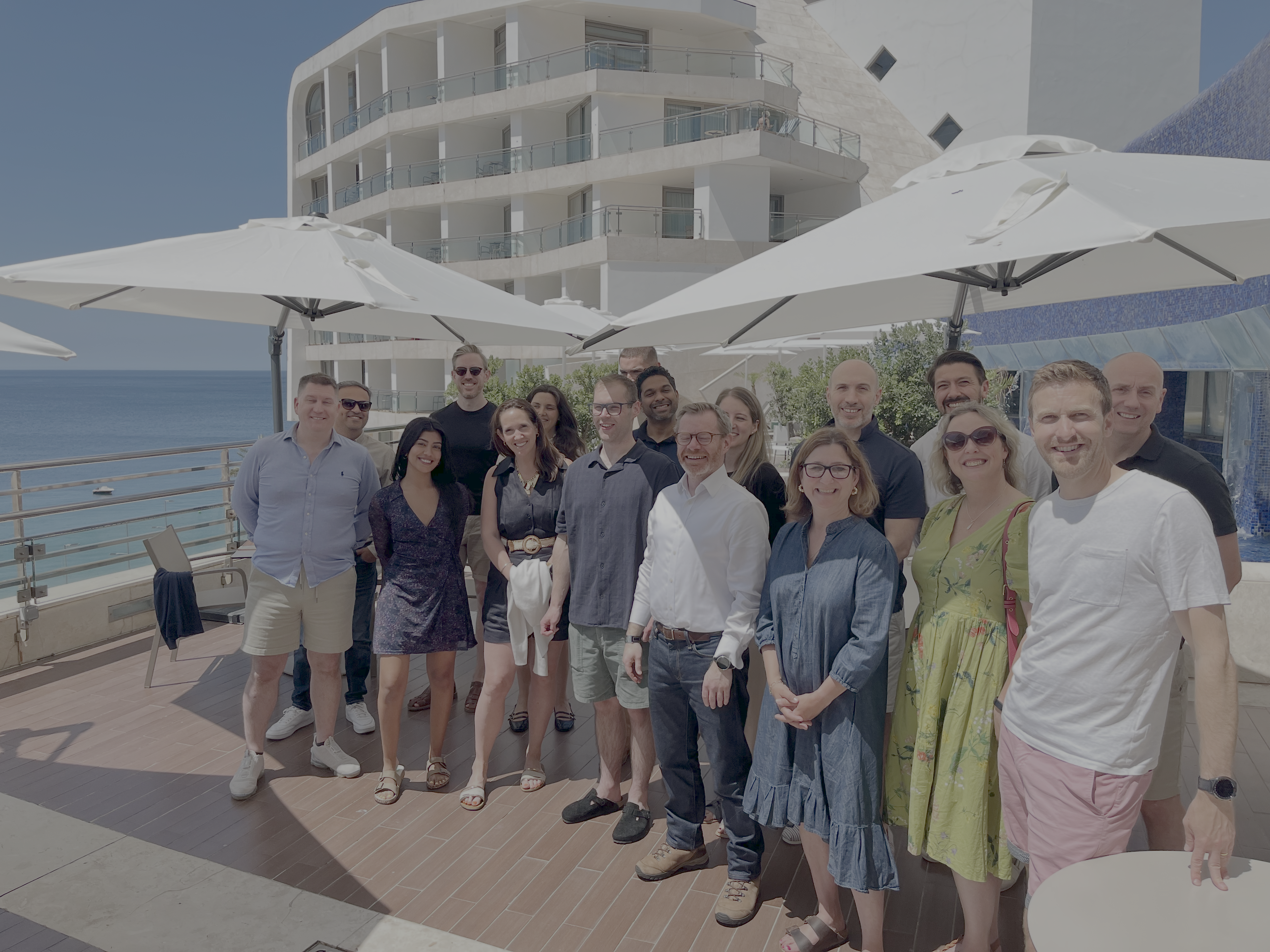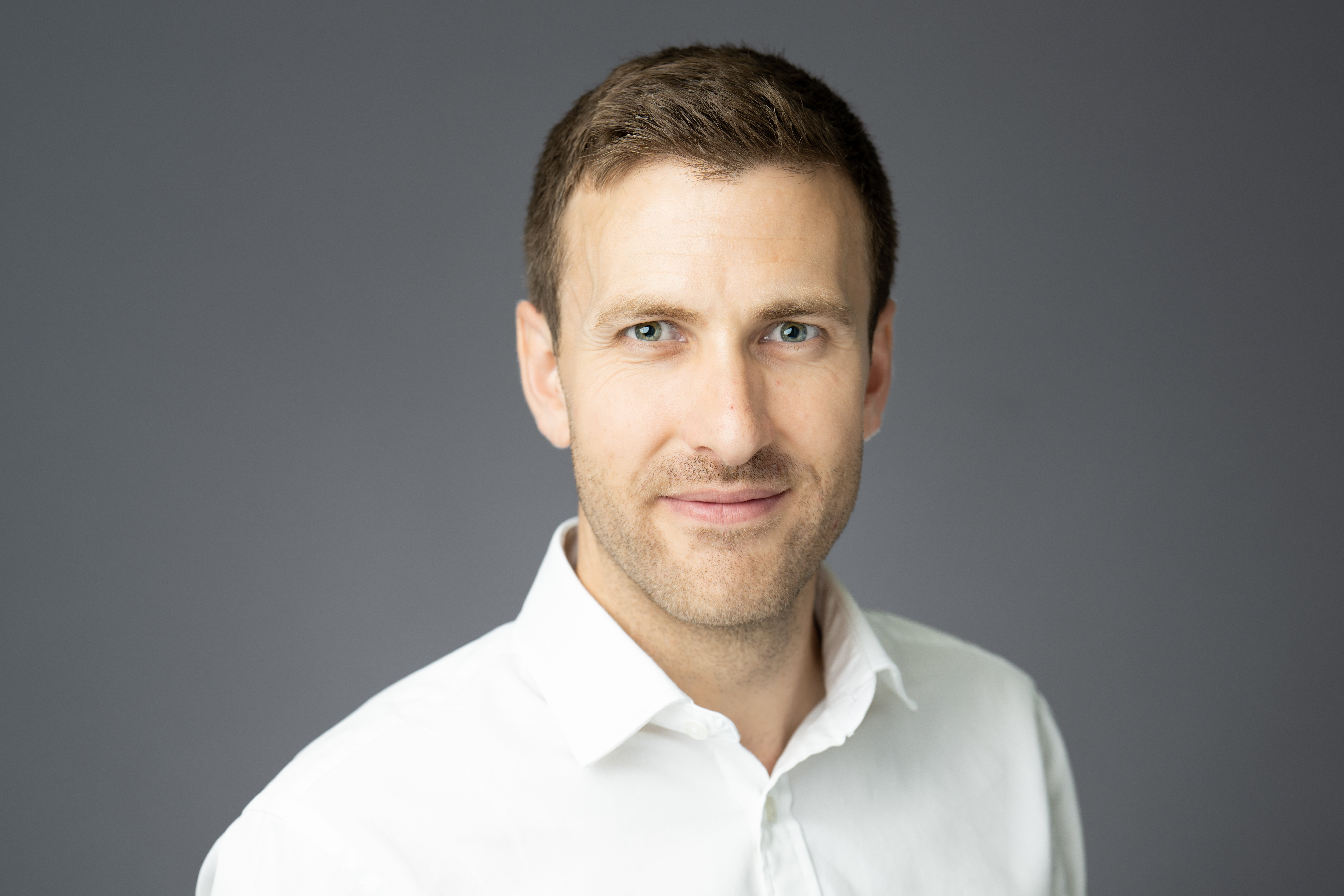There’s a clear pattern in every successful client transformation we’ve supported: the highest-performing teams are not necessarily the ones with the biggest budgets or the most advanced tooling, but the ones that are aligned – on priorities, on decision-making, and on how they are going to work together to achieve their goals
That holds true for us, too. Which is why this year, for the first time, we took the entire BeyondFS team abroad to Sesimbra, Portugal, stepping away from day-to-day delivery, and spend time together reflecting, working, and reconnecting.
We’ve run ‘BeyondAway’ retreats before. But this was different: the first time off UK soil, and the first time we’ve taken two full days away from client work to focus on how we become the best possible organisations – for our clients and for our team.
And if you’re leading a large team, whether in financial crime, operations, or risk, the principle of needing to sometimes take the team (or at least the senior team) away from the day-to-day apply just as strongly. I really believe that taking the time to build alignment and make space for serious conversation about how you work isn’t a perk – it’s a lever.

Having arrived late on Wednesday evening, we were up early to open the day on Thursday with a presentation from Al Catto, reflecting on what we’ve built so far and how we want to evolve.
This year, BeyondFS was named one of the Sunday Times Best Places to Work 2025 in the small company category – external validation of the culture we’ve spent years shaping. But culture isn’t fixed; it’s something you maintain, reinforce, and rebuild constantly, through your actions, your decisions, and the way you work together when no one’s watching.
At the core of our discussion on Thursday was our purpose: financial crime prevention isn’t working – and how we’re here to change that. Not by helping on the sidelines, but by empowering the exceptional people in our team to lead complex change in high-pressure environments.
When we talk about building high-performing financial crime programmes, we mean starting with the reality on the ground, understanding where legacy decisions have created risk and where front-line teams are overburdened, or where leadership lacks visibility or confidence in what’s actually being delivered.
Al talked about what makes BeyondFS special to work with – we are laser-focused on execution. The famous Peter Drucker quote we kept repeating rings particularly true for us: "Strategy is a commodity, execution is an art". As Al reminded us, our focus on delivery is why every client we've worked with so far has asked us back.
Over the course of Thursday and Friday, we split out into smaller groups to work through topics we don’t always have time to address fully in the day-to-day.
What stood out was the level of openness in the conversations, and the balance of experience around the table. People brought different perspectives, but with a shared sense of ownership for the direction we’re heading.
This kind of alignment isn’t automatic. It takes time, and focus, and a willingness to disagree constructively in order to get to better answers.
Over dinner on Friday evening, we paused to reflect on some of the outstanding contributions from across the team over the past quarter.
Alongside some other awards, this quarter’s Beyonder of the Quarter went to the brilliant Irene Oldham, whose impact over the last few months has been felt well beyond her core responsibilities. From planning the Portugal trip to organising team socials and ensuring new joiners are supported from day one, Irene has helped create a space where people genuinely want to do their best work. Her persistence in driving our recruitment efforts forward has been equally impressive.
On Saturday, the team had the option to take a boat trip along the coast. I joined the crew, and we enjoyed glorious weather as the boat sailed along the Portuguese coast.
We had a chance to jump in the sea – some went paddleboarding, some swam. Some attempted headstands on said paddleboards. We ate together again that evening, before flying home on the Sunday.
Those moments – the unstructured ones – often tell you just as much about a team as any workshop or presentation. But what makes the whole thing worthwhile is the effect it has when people are back at their desks, on client sites, running projects and leading teams.
So if you’re running a large function or growing a team, don’t treat this kind of time as a reward to be earned or a luxury to be justified. Treat it as a core part of how you improve. Step away from the noise, bring your people together, and give yourselves the time to ask: how are we going to achieve our goals?
What I can say with confidence is that we’ve come back more aligned, more energised, and better prepared for what’s ahead. Bring on the rest of this year!




